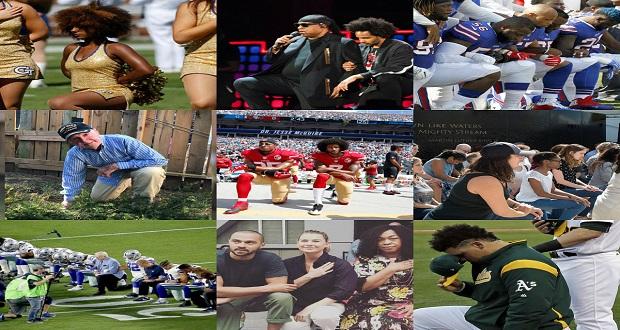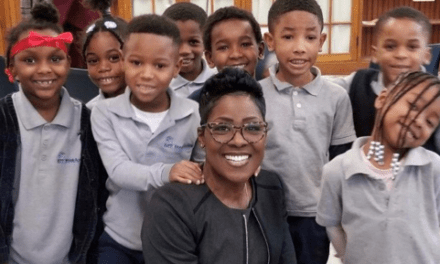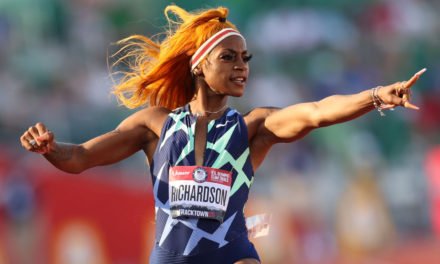This weekend, as I met up with friends to celebrate the coming of fall (and for many, football season!), a friend I hadn’t seen in a while asked me for my take on the latest NFL protests, and in particular, the response from President Trump and the general public.
Although I am not a very enthusiastic fan of professional football, I have been keeping up with the various protests within the NFL over the last several years, and have been inspired by players taking the opportunity to take a stance against injustice and inequality both on and off the field.
By now, you’ve likely heard of the decision made by NFL players and owners to kneel instead of stand during the national anthem during football games this past Sunday. In a statement of solidarity, professional athletes and team owners alike kneeled and locked arms this weekend to protest President Trump’s criticism of players exercising their first amendment rights to silently protest during the pre-game performance of the “Star-Spangled Banner”. Several teams, including the New England Patriots, Cleveland Browns, Denver Broncos, Jacksonville Jaguars, and the Miami Dolphins took part in the protest, mostly in response to statements made by President Trump that harshly criticized NFL players for their involvement.
My response to President Trump’s rhetoric? This isn’t about the flag.
President Trump’s initial criticism, like many others’, was likely sparked by the decision of former San Francisco 49ers quarterback Colin Kaepernick’s to kneel instead of stand during the national anthem in 2016. Kaepernick cited the unfair treatment and oppression of people of color as his main reasons behind refusing to stand for the anthem. At that time, Kaepernick’s actions were seen as largely controversial, and his decision to protest sparked a national dialogue and debate around patriotism, the Black Lives Matter movement, and social and criminal justice. Ironically, President Trump has shared that his comments have nothing to do with race, but Kaepernick’s original protest had everything to do with race.
Since Kaepernick’s initial protest, players across the country have followed suit, expressing their dissatisfaction with the systems and institutions that largely remain silent on issues that affect people of color while continuing to police the actions of this community, including “unacceptable” forms of protest.
But when were protests ever socially acceptable? As Mareisha Reese points out in this weeks’ Buzz, isn’t that the point of a protest – to bring attention to the things that typically aren’t apart of the regular discourse or that may make us uncomfortable?
Beyond the form of protest, I am more concerned with what comes after #TakingaKnee. Will there be more activism, or was this simply a short-lived media opportunity? Will more players and owners take the time to learn why Kaepernick originally protested, and continue to stand with him in solidarity against violence and injustice – and not just against President Trump? Will #TakingaKnee fade amidst other, seemingly more pressing concerns?
To me, #TakingaKnee is not about disrespect, but about discontent with the current status quo. It is about acknowledging that an equal playing field does not exist, and about raising awareness of the institutions and systems of oppression that have impacted our country both historically and in the present. So, when, and if, the public conversation dies down and people go back to their regularly programmed NFL Sundays, will we be discontented enough by what we’ve seen and heard to do something? Do we use this opportunity to ask questions, challenge our assumptions, listen to those who have experienced injustice, and stand with them in the fight for justice?
I can only hope that this increased interest will continue well after the football season and continue to spark dialogue on what each of us can do to #TakeaKnee in our own communities. And, as for me – I will be watching a bit more football this fall, and taking the time to cheer for justice, awareness, and equity.



















